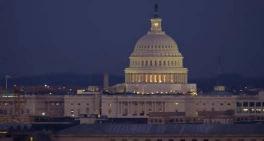Philippine Supreme Court orders release of drug war evidence
US Legal News
The Philippine Supreme Court on Tuesday ordered the release of police documents on thousands of killings of suspects in the president’s anti-drug crackdown, in a ruling that human rights groups said could shed light on allegations of extrajudicial killings.
Supreme Court spokesman Brian Keith Hosaka said the court ordered the government solicitor-general to provide the police reports to two rights groups which had sought them. The 15-member court, whose justices are meeting in northern Baguio city, has yet to rule on a separate petition to declare President Rodrigo Duterte’s anti-drug campaign unconstitutional.
Solicitor-General Jose Calida had earlier agreed to release the voluminous police documents to the court but rejected the requests of the two groups, the Free Legal Assistance Group and the Center for International Law, arguing that such a move would undermine law enforcement and national security.
The two groups welcomed the court order. “It’s a big step forward for transparency and accountability,” said Jose Manuel “Chel” Diokno, who heads the Free Legal Assistance Group.
He said the documents will help the group of human rights lawyers scrutinize the police-led crackdown that was launched when Duterte came to office in mid-2016, and the massive number of killings that the president and police say occurred when suspects fought back and endangered law enforcers, Diokno said.
“This is an emphatic statement by the highest court of the land that it will not allow the rule of law to be trampled upon in the war on drugs. It is a very important decision,” said Joel Butuyan, president of the Center for International Law.
“These documents are the first step toward the long road to justice for the petitioners and for thousands of victims of the ‘war on drugs’ and their families,” Butuyan said.
More than 5,000 mostly poor drug suspects have died in purported gunbattles with the police, alarming Western governments, U.N. rights experts and human rights watchdogs. Duterte has denied ordering illegal killings, although he has publicly threatened drug suspects with death.
The thousands of killings have sparked the submission of two complaints of mass murder to the International Criminal Court. Duterte has withdrawn the Philippines from the court.
After holding public deliberations on the two groups’ petitions in 2017, the Supreme Court ordered the solicitor-general to submit documents on the anti-drug campaign, including the list of people killed in police drug raids from July 1, 2016, to Nov. 30, 2017, and documents on many other suspected drug-linked deaths in the same period that were being investigated by police.
Related listings
-
US revokes visa for International Court prosecutor Bensouda
US Legal News 04/05/2019The prosecutor of the International Criminal Court said Friday that her U.S. visa has been revoked, in what appears to a crackdown on the global tribunal by the Trump administration.In a statement confirming the revocation, Prosecutor Fatou Bensouda&...
-
Group takes oil refinery fight to North Dakota's high court
US Legal News 03/29/2019An environmental group is taking its battle against an oil refinery being developed near Theodore Roosevelt National Park to the North Dakota Supreme Court.The National Parks Conservation Association argued in its Wednesday filing that an air quality...
-
DC-area sniper shootings case to have Supreme Court hearing
US Legal News 03/19/2019The Supreme Court on Monday agreed to consider Virginia’s plea to reinstate the life-without-parole sentence of a man who as a teenager participated in sniper shootings that terrorized the Washington, D.C., region in 2002.The justices said they...

Illinois Work Injury Lawyers – Krol, Bongiorno & Given, LTD.
Accidents in the workplace are often caused by unsafe work conditions arising from ignoring safety rules, overlooking maintenance or other negligence of those in management. While we are one of the largest firms in Illinois dedicated solely to the representation of injured workers, we pride ourselves on the personal, one-on-one approach we deliver to each client.
Work accidents can cause serious injuries and sometimes permanent damage. Some extremely serious work injuries can permanently hinder a person’s ability to get around and continue their daily duties. Factors that affect one’s quality of life such as place of work, relationships with friends and family, and social standing can all be taken away quickly by a work injury. Although, you may not be able to recover all of your losses, you may be entitled to compensation as a result of your work injury. Krol, Bongiorno & Given, LTD. provides informed advocacy in all kinds of workers’ compensation claims, including:
• Injuries to the back and neck, including severe spinal cord injuries
• Serious head injuries
• Heart problems resulting from workplace activities
• Injuries to the knees, elbows, shoulders and other joints
• Injuries caused by repetitive movements
For Illinois Workers’ Compensation claims, you will ALWAYS cheat yourself if you do not hire an experienced attorney. When you hire Krol, Bongiorno & Given, Ltd, you will have someone to guide you through the process, and when it is time to settle, we will add value to your case IN EXCESS of our fee. In the last few years, employers and insurance carriers have sought to advance the argument that when you settle a case without an attorney, your already low settlement should be further reduced by 20% so that you do not get a “windfall.” Representing yourself in Illinois is a lose-lose proposition.




